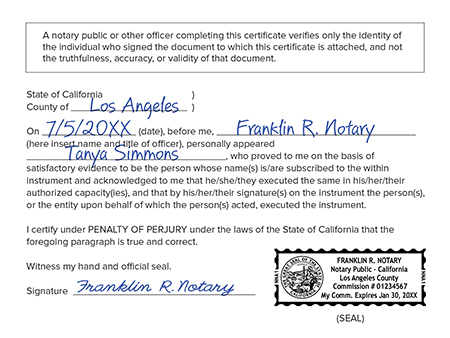The Validity of Notarized Documents Remains Irrespective of Notary Commission Expiration
Legal Documents Remain Valid After Notary Commission Expiration
A key question arises regarding whether notarized documents remain valid after the notary’s commission expires. The expiration date on a notarized document merely indicates when the notary’s current commission expires and does not impact the validity of the document itself. So long as the notary was duly authorized on the date of notarization, the signature was made under oath and remains legally notarized even after the commission expires. If notarizations became invalid after commission expiration, it would create chaos in the legal system. Countless long-validated legal documents from past decades would suddenly become questionable without costly re-authentication. Lawyers could not rely on these documents in court without belabored provenance investigations. This outcome makes no practical sense and has never been interpreted as valid by courts.

The Notary Commission Date Has No Bearing on Past Documents
A power of attorney or other legal instrument might terminate for independent reasons unrelated to the notary commission date. State laws also vary on notarization requirements, and some documents like POAs do not necessarily demand notarization. Importantly, changes in notary laws after a document is validated do not require re-notarization due to constitutional protections against ex post facto retroactive legislation. Once properly notarized under the laws in effect, the validation stands regardless of future commission or statutory modifications. Courts have also upheld notarizations made in good faith where the notary’s commission inadvertently lapsed, if substantial legal compliance occurred. Clerical errors or temporary lapses do not negate authentications where no deception or malfeasance transpired.
The De Facto Officer Doctrine Upholds Good Faith Notarizations
Even if a notary lacked full “de jure” legal qualification due to an unknown technicality, the “de facto officer doctrine” protects public notarizations performed in good faith. Citizens cannot reasonably be mandated to investigate a notary’s credentials before each authentication. If a compliance problem arises later, prompt correction suffices without retroactive invalidation. Most importantly, the public relies on the integrity of countless estate, property, and court records validated by long-expired notary commissions. Overturning this stability risks catastrophic disruption versus isolated technical issues.
Notary Authorization Remains Regardless of Future Status
Once duly enacted, a notarization retains permanent legal effect irrelevant of an individual’s later circumstances. Notaries may resign, retire, perish or relocate between states, yet past validations endure. Occasional cases find courts upholding notarizations performed after unknown commission lapses, where instant intent aligned with statutes. Overall, the law stresses substance over minor administrative technicalities to preserve good faith transactions and confidence in foundation documents. A notary’s future changes or errors carry no retroactive effect on past acts executed properly as an officer.
Conclusion
In summary, a notary commission expirationdate conveys no implications for documents notarized during active tenure. Courts consistently defend the integrity of records against hypothetical future challenges dependent on dispersed officials’ changing personal circumstances. Practically and legally, notarizations represent permanentsignatures affirmed under oathuntainted by subsequent events. The system and public requirepredictability and stability in validatedactsrather than uncertain disruption over non-substantivedetails.
